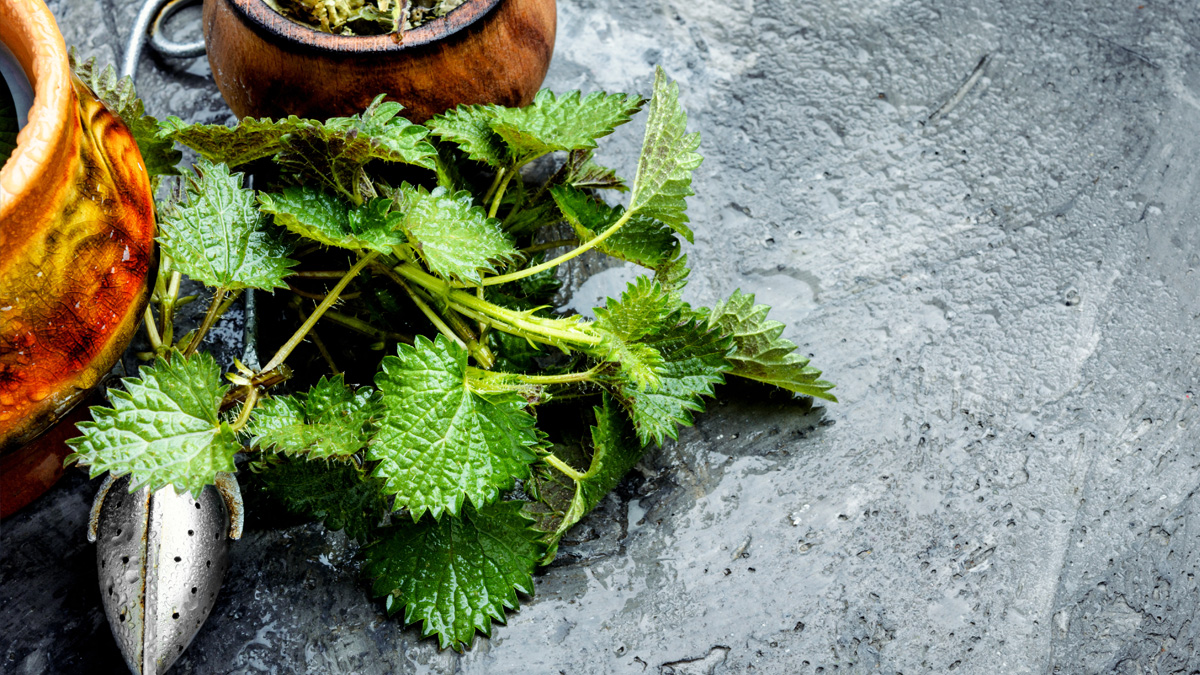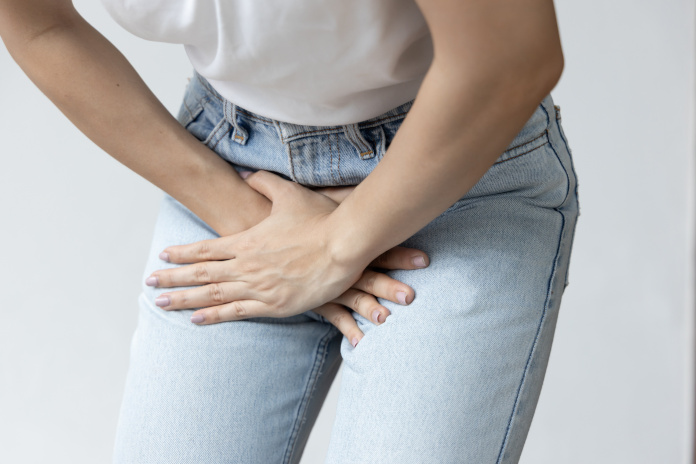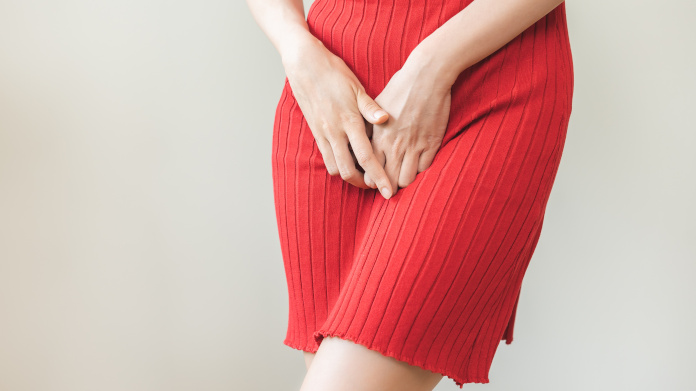5 plants with recognised benefits for urinary health
Urinary health problems are common: in men, it’s often prostate issues, in women, cystitis … Here we focus on five plants recommended for alleviating urinary discomfort.

Urinary problems can affect anyone, at any age. From painful urination and cystitis, to conditions affecting the prostate, the consequences of poor urinary health can be serious, and may even extend to kidney failure.
Plants with scientifically-recognised effects can help prevent and reduce complications associated with the various disorders in question.
Cranberry
Cranberry is particularly good for those who suffer from repeated urinary tract infections (UTIs). UTIs occur when external bacteria succeed in colonising the urinary tract. They can affect different parts of the system: the kidneys, bladder, and tubes (the ureters – between the kidneys and bladder, and the urethra, which conveys urine from the bladder to the outside). Women are more susceptible to UTIs, primarily because the female urethra is shorter and bacteria don’t have so far to travel in order to colonise the tract.
Cranberry juice has been studied for many years for its effects in fighting UTIs (1). Cranberry’s beneficial molecules include proanthocyanidins, antioxidant polyphenols which prevent bacteria from clinging to urinary tube walls. They are supported by specific polysaccharides called arabinoxyloglucans (2). Cranberry’s active compounds are also recognised for their ability to reduce the risk of recurrence when you’ve already suffered one or more episodes of cystitis.
In practice: drink 250-500ml of cranberry juice a day, or alternatively, an equivalent dose in capsule form (the gold-standard is Cran-Max®) should be enough to prevent recurrent UTIs. Cranberry also offers the advantage of not being contraindicated for women who are pregnant or breast-feeding.
Willowherb
Willowherb, also known as fireweed or epilobium angustifolium, is an herbaceous plant with small pink flowers, recommended more for men, especially those suffering from benign prostatic hyperplasia (an enlarged prostate). Very common among men over 60, this condition is characterised by an increase in volume of the prostate gland, due to abnormal, non-cancerous cell proliferation. When the prostate becomes too large, it makes passing urine difficult and results in the frequent urge to urinate, as well as problems with urine flow and painful micturition.
How does willowherb work? It contains oenothein, a polyphenol which inhibits two of the enzymes responsible for prostate cell proliferation (3). Willowherb thus helps ‘deflate’ the prostate. It also has anti-inflammatory effects, and thus alleviates prostatitis, a disorder that can aggravate benign prostate hyperplasia (4).
In practice: willowherb can be consumed once or twice a day in the form of a tea made from the aerial parts of the plant, infused in water for 10 minutes.
Orthosiphon
Orthosiphon, also known as Java tea, is a plant that features in traditional Indian and Indonesian medicine. It is known for its diuretic properties: it boosts kidney function and urine volume, helping to accelerate elimination of the bacteria which cause urinary infections. Orthosiphon’s diuretic effect also helps to restrict the formation of kidney stones in those susceptible to them (5).
In practice: Java tea can be drunk as an infusion made from the dried leaves or taken in capsule form. Note, however, that orthosiphon is not recommended for people with diagnosed kidney disease, those who suffer from water retention or anyone under 18 years of age. Seek advice from your pharmacist before taking orthosiphon for therapeutic purposes.
Bearberry
This small red-berried shrub contains a sugar called arbutin which is converted by gut bacteria into hydroquinone. This compound has powerful anti-bacterial properties at a urinary level, directly combatting four pathogens involved in cystitis, and is an interesting alternative to antibiotics when medically supervised (6).
In practice: you can either drink three to four cups of bearberry leaf tea a day or take it as a supplement in the form of capsules. Note, however, that hydroquinone is toxic in the long term and should not be used for more than a few weeks. It should not be taken by women who are pregnant or breastfeeding, or those under 12 years of age, even for short periods.
Pumpkin seed oil
Everyone can benefit from greater urinary comfort by consuming this vegetable oil. In men, it helps combat benign prostatic hyperplasia and its characteristic cell proliferation and inflammation, as well as improving micturition-related symptoms (7). For both men and women, it offers anti-bacterial effects against strains active in the urinary tract. It also helps to control a hyperactive bladder which manifests in the frequent and urgent need to urinate, including during the night (8). Lastly, pumpkin seed oil has diuretic effects which increase urine volume and reduce the chances of bacteria stagnating in this area (9).
In practice: pumpkin seed oil should be consumed in its raw form and is well tolerated by the body. It is available bottled, for including in your daily diet, but can also be found in the form of dietary supplements: Pumpkin Seed Oil 500 mg, enriched with vitamin E.
Good hygiene, adequate hydration and phytotherapy can all help prevent the discomfort of urinary disorders. However, if problems persist, or you are in any way worried that your symptoms are serious, or are unsure of which treatment to use, be sure to consult your GP.
References
- Fu Z, Liska D, Talan D, Chung M. Cranberry Reduces the Risk of Urinary Tract Infection Recurrence in Otherwise Healthy Women: A Systematic Review and Meta-Analysis. J Nutr. 2017 Dec;147(12):2282-2288.
- Coleman CM, Auker KM, Killday KB, Azadi P, Black I, Ferreira D. Arabinoxyloglucan Oligosaccharides May Contribute to the Antiadhesive Properties of Porcine Urine after Cranberry Consumption. J Nat Prod. 2019 Mar 22;82(3):589-605.
- Ducray, Marston, Göhring, Hartmann, Hostettmann : Inhibition of 5A-reductase and aromatase by the ellagitannins oenothein A and oenothein B from Epilobium species. Planta Med 1997 ; 63 (2) : 111-114.
- Deng L, Zong W, Tao X, Liu S, Feng Z, Lin Y, Liao Z, Chen M. Evaluation of the therapeutic effect against benign prostatic hyperplasia and the active constituents from Epilobium angustifolium L. J Ethnopharmacol. 2019 Mar 25;232:1-10.
- Adam Y, Somchit MN, Sulaiman MR, Nasaruddin AA, Zuraini A, Bustamam AA, Zakaria ZA. Diuretic properties of Orthosiphon stamineus Benth. J Ethnopharmacol. 2009 Jul 6;124(1):154-8.
- Schindler G, Patzak U, Brinkhaus B, von Niecieck A, Wittig J, Krähmer N, Glöckl I, Veit M. Urinary excretion and metabolism of arbutin after oral administration of Arctostaphylos uvae ursi extract as film-coated tablets and aqueous solution in healthy humans. J Clin Pharmacol. 2002 Aug;42(8):920-7.
- Wilt TJ, MacDonald R, Ishani A. beta-sitosterol for the treatment of benign prostatic hyperplasia: a systematic review. BJU Int. 1999 Jun;83(9):976-83.
- Nishimura M, Ohkawara T, Sato H, Takeda H, Nishihira J. Pumpkin Seed Oil Extracted From Cucurbita maxima Improves Urinary Disorder in Human Overactive Bladder. J Tradit Complement Med. 2014;4(1):72–74.
- Al-Ghazal, Abdulrhem. (2012). Evaluation of Antibacterial Effect of Cucurbita pepo (Yakten) Extracts on Multi-antibiotic Resistance Bacterial Strains Isolated From Human Urinary Tract Infections. Raf. J. Sci., Vol. 23, No.2 pp 1-7
11 Hours
great experience
Easy ordering, fast deliver, very professionally.
Natasa
3 Days
this company and its products are…
this company and its products are perfect: I have been their customer for three years , prices are reasonable for the high quality they offer , the products are of very good quality not just plainly "normal" , delivery is quite fast. we are very satisfied with them.
Gabriel Diacakis
4 Days
TOP service TOP products will buy again…
TOP service TOP products will buy again and again
PINOTTI Giorgio
6 Days
Trustworthy company with tested products
Trustworthy company with tested products
Trusted
10 Days
Efficiency and speed
Efficiency and speed
Cuccie
12 Days
GOOD BRAND IN FOOD COMPLEMENTS
GOOD BRAND IN FOOD COMPLEMENTS - SERIOUS WITH GOOD DOCUMENTS AND DETAILS SCIENTIST. AND SERIOUS HONNEST COMMERZIALISATION. I HAVE TRUST IN THEIR PRODUCTS.
FENOGLIO Guy
13 Days
Very good experience
Very good experience, the products arrived in time, in perfect condition and are good quality. Thank you.
GABI TIRCOCI
19 Days
very good expereince
very good expereince
Jelena Đaković
19 Days
Very good products.
Very good products.
Agnes BENDSAK
21 Days
Just OK
Just OK, ordering from company for many years and being safisfied
Lynn Mae
22 Days
Recomendo
Produtos encomendados são recebidos atempadamente e de acordo com o anunciado! Muito satisfeita!
Carla Sofia
22 Days
Everything is great!
Everything is great!
Jonas
27 Days
The delivery was fast and the product…
The delivery was fast and the product is great
SOMMARIVA Gianni
29 Days
Great service and lots of information
Great service and lots of information
Gabi
32 Days
Service Satisfaction
I’m satisfied with the service; it fulfilled what it set out to do.
Anfhony Abreu
of experience
your money back
##montant## purchase




